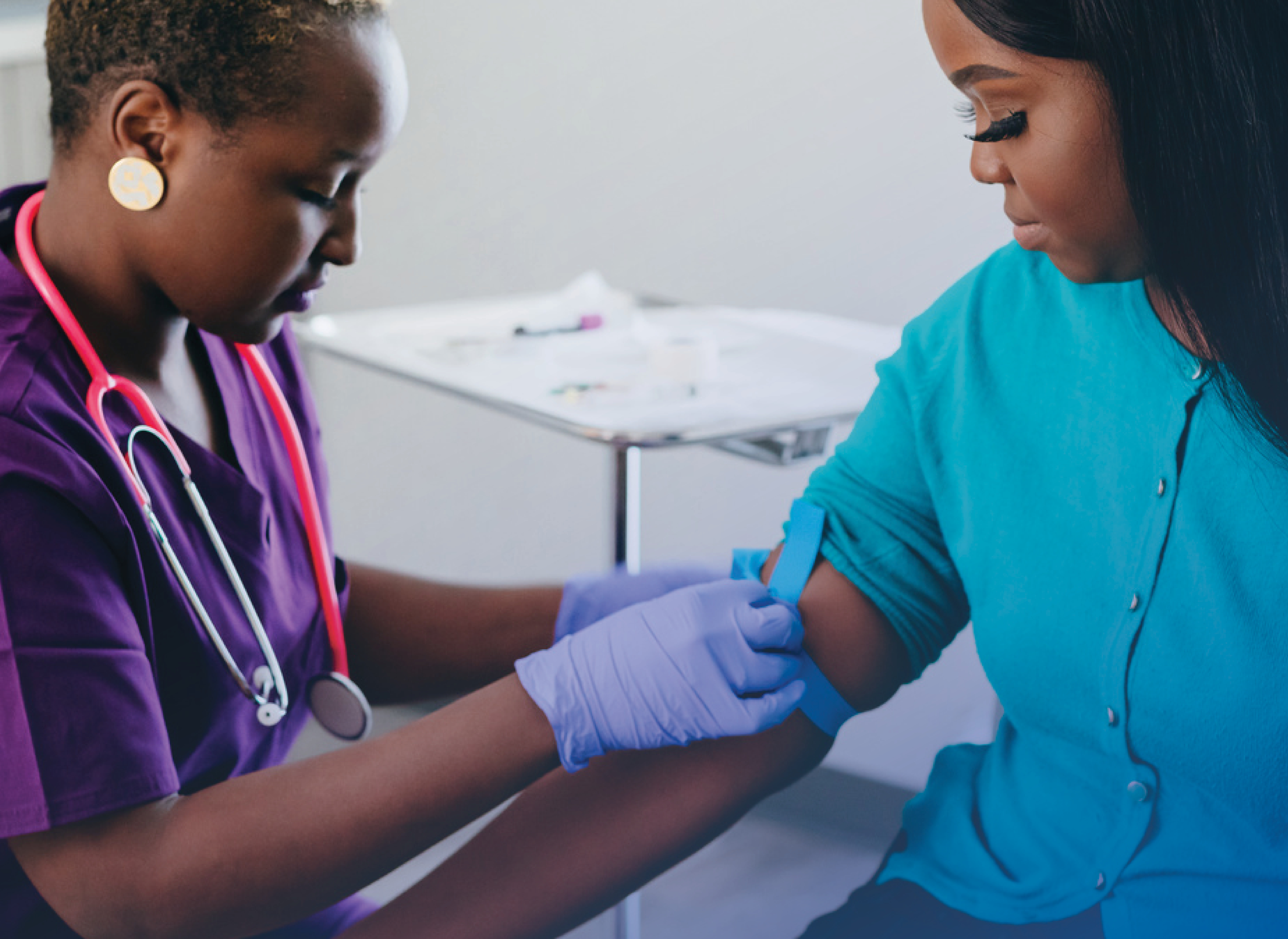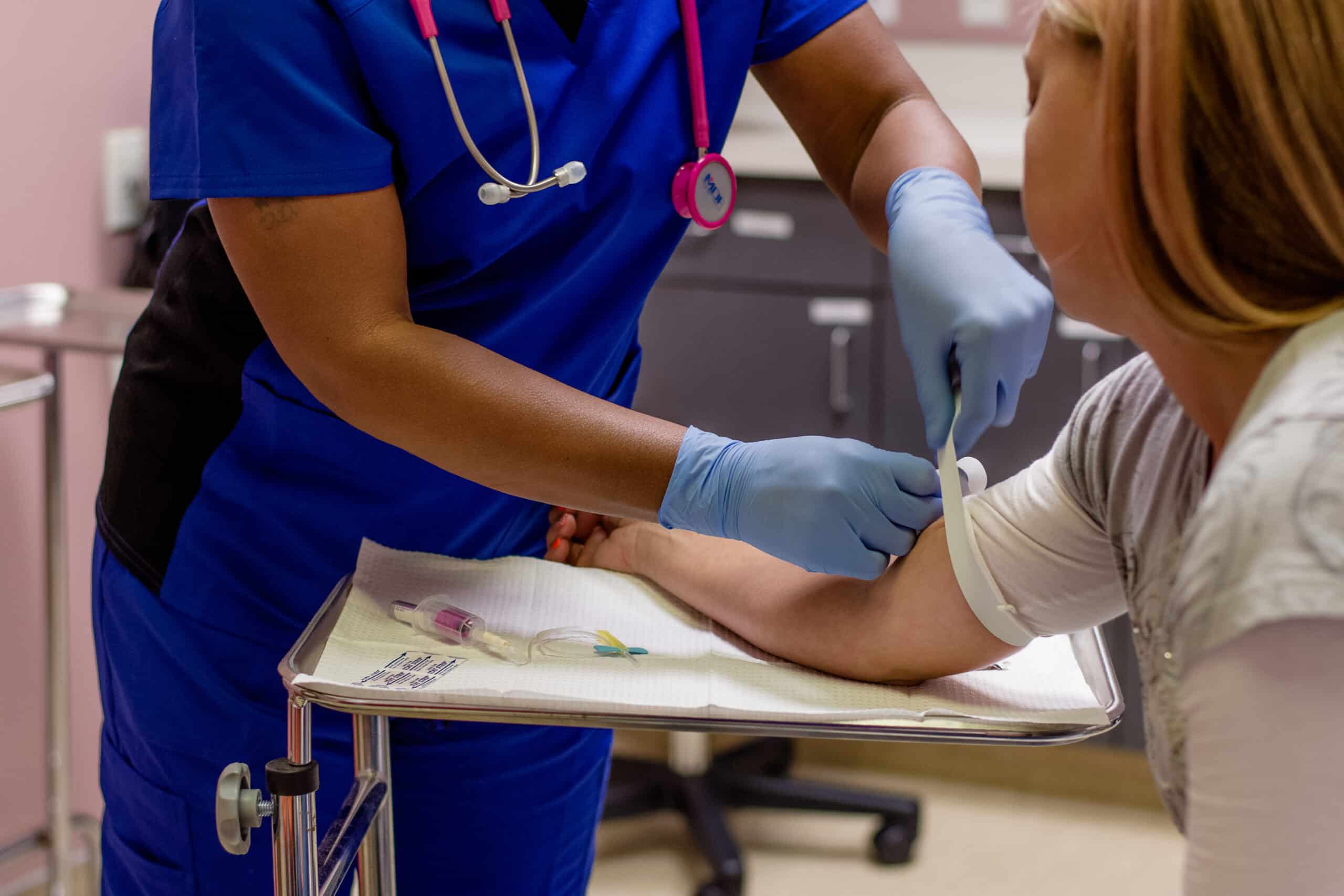Day in the Life as a Student in a Phlebotomy Training Course
The Path to Certification: Recognizing the Phlebotomy Training Program Journey and Its Relevance
As you consider the course to accreditation in phlebotomy, it's essential to recognize the role you'll play in health care. Your training will certainly cover vital abilities, from blood collection techniques to patient communication. Each part of the program prepares you for the challenges in advance. Yet just what does the trip involve, and why is qualification so crucial for your future career? Let's check out these inquiries better.

The Function of Phlebotomists in Healthcare
Phlebotomists play a vital role in the healthcare system, acting as the crucial web link between people and necessary diagnostic screening. You'll perform blood draws, making certain samples are collected properly and safely. Your proficiency aids in detecting clinical conditions, checking health and wellness, and assisting treatment choices.
In your daily communications, you'll require to develop count on with individuals, making them feel comfortable throughout what could be a demanding experience. You are accountable for labeling and managing samples thoroughly to prevent contamination or errors, which can affect examination outcomes.
Yet, you'll typically work together with doctors and registered nurses, interacting vital information concerning clients' problems. Your role is essential in preserving the operations in health care settings, guaranteeing timely and accurate results. By understanding your abilities, you contribute meaningfully to patient care, making you an indispensable part of the clinical group. Embracing this duty is key to your success as a phlebotomist.
Introduction of Phlebotomy Training Programs
When discovering phlebotomy training programs, you'll find different types developed to fit different schedules and learning styles. Each program assists you develop necessary abilities like blood collection and patient interaction. Understanding these options is crucial to choosing the best path for your profession.
Kinds of Educating Programs
Numerous sorts of training programs are offered for those looking to end up being competent in phlebotomy. You can pick from certificate programs, which generally last a couple of months and focus on necessary skills. There are likewise diploma programs that give a more comprehensive education and learning, typically lasting approximately a year. If you're seeking a deeper understanding, an associate level in a relevant field could be the best fit. Online training courses supply adaptability for those balancing job or household commitments, permitting you to research at your very own speed. In addition, some hospitals and clinics use on-the-job training programs, giving useful experience while you find out. Whatever path you pick, each program intends to equip you with the essential abilities for an effective phlebotomy profession.
Trick Skills Created
Mastering phlebotomy requires a collection of essential skills that are created with thorough training programs. You'll learn technical abilities like correct vein selection, needle insertion, and blood collection methods. These hands-on methods ensure you can carry out procedures safely and efficiently. Additionally, communication abilities are fundamental; you'll require to engage with clients, discuss procedures, and placed them secure. Comprehending makeup and physiology is vital, too, as it aids you locate capillaries and comprehend the body's action to blood attracts. Finally, you'll acquire knowledge of safety methods and infection control, assuring you maintain a sterile setting. Each of these abilities is crucial for your success as a certified phlebotomist, making you an important possession in any healthcare setup.
Secret Components of a Phlebotomy Course
In a phlebotomy course, you'll concentrate on important subjects that prepared for your future occupation. You'll participate in hands-on training that permits you to use what you've learned in real-world settings. Both the curriculum and sensible experience are crucial for your success as a phlebotomist.
Core Curriculum Overview
While seeking a phlebotomy training course, you'll come across a curriculum created to outfit you with basic abilities and expertise. Phlebotomy school. This educational program normally includes makeup and physiology, focusing on the blood circulation system and recognizing blood parts. You'll additionally discover various types of blood collection techniques, consisting of venipuncture and capillary leak strategies
Furthermore, infection control and safety procedures are important elements, guaranteeing you understand how to maintain a clean and sterile atmosphere. You'll study patient interaction, highlighting communication and empathy, which are vital for reducing patient anxiousness.
Hands-On Training Experience
Obtaining hands-on experience is an essential component of your phlebotomy training course. This sensible training enables you to apply what you have actually my link discovered in a real-world setup, improving your skills and confidence. Phlebotomy Classes Near Me.
Additionally, you'll get the possibility to communicate with patients, which is important for establishing your interaction skills. This combination of technological proficiency and interpersonal skills is important for your success as a certified phlebotomist. Ultimately, hands-on training is where theory satisfies technique, solidifying your understanding and readiness for use this link certification.
Qualification and Licensing Requirements
Before you can begin your occupation in phlebotomy, it is vital to comprehend the accreditation and licensing demands that vary by state. A lot of states require phlebotomists to hold an accreditation from a recognized organization, such as the National Phlebotomy Organization or the American Culture for Scientific Pathology. These accreditations generally involve passing an exam that tests your understanding and skills in the area.
Along with certification, some states have specific licensing needs. You might require to finish a specific number of hours in medical technique, submit proof of training, or undergo a history check. It is necessary to investigate your state's policies to see to it you fulfill all necessary criteria.
Staying educated concerning these requirements not just helps you safeguard a placement however additionally enhances your credibility as a specialist. By fulfilling these needs, you'll be well on your way to a successful career in phlebotomy.
Hands-On Training and Practical Experience
Hands-on training and practical experience are crucial elements of your phlebotomy education and learning, as they allow you to apply academic understanding in real-world situations. Throughout your training, you'll participate in monitored venipuncture, find out proper methods, and end up being acquainted with numerous blood collection tools. This straight involvement is critical for developing your confidence and sharpening your abilities.
You'll function very closely with knowledgeable specialists that can guide you via the nuances of person interaction and sample handling. Each practice not just strengthens your understanding however also prepares you for the fast-paced setting of healthcare settings.
Furthermore, lots of programs integrate professional rotations, enabling you to experience varied setups, from healthcare facilities to outpatient clinics. This exposure assists you adapt to various challenges and person demands, guaranteeing you're well-prepared for your future function. Welcome these possibilities, as they're necessary to coming to be a skilled and compassionate phlebotomist.
Challenges Encountered Throughout Training
While click site acquiring hands-on experience is vital, it's vital to identify the challenges that can arise throughout your phlebotomy training. In addition, mastering the abilities needed for blood attracts takes technique; you may struggle with technique originally.
Time monitoring can also be a difficulty, as harmonizing theory, functional sessions, and individual dedications can feel intimidating. You might encounter differing finding out speeds among your peers, bring about sensations of self-doubt if you believe you're falling back. Adjusting to the different individualities of instructors can be tough, as each may have a special training style.
Identifying these challenges beforehand can prepare you for success and assist you create durability throughout your training journey.
Job Opportunities After Accreditation

As you obtain experience, you could even think about focusing on locations like pediatric or geriatric phlebotomy, dealing with specific person demands. Some phlebotomists pick to progress their jobs by becoming laboratory professionals or going after additional education in medical care areas.
In addition, your certification can result in duties in training or monitoring new phlebotomists, allowing you to share your knowledge. With the healthcare market continuously growing, your abilities will always be in demand, leading the way for a steady and meeting occupation. Embrace the possibilities waiting for you!
Frequently Asked Concerns
What Is the Typical Period of a Phlebotomy Educating Program?
Phlebotomy training courses normally last around four to 8 weeks. You'll take part in hands-on method, class guideline, and on-line knowing. Completing this training prepares you for qualification and a gratifying job in health care.
Are Online Phlebotomy Courses Available?
Yes, on-line phlebotomy courses are offered. They provide adaptability and benefit, permitting you to research at your very own speed. Simply verify the program is certified to satisfy accreditation needs and obtain important abilities for your career.
Just How Much Does Phlebotomy Training Typically Price?
Phlebotomy training normally costs between $700 and $2,500, depending upon the program and place. You should consider elements like program length, consisted of products, and hands-on experience when choosing the right training for you.
What Prevail Prerequisites for Phlebotomy Training?
Typical requirements for phlebotomy training frequently consist of a senior high school diploma or GED, booster shots, and a background check. Some programs might also require basic health care expertise or qualifications, guaranteeing you're planned for hands-on training.
Can I Work While Completing My Phlebotomy Training?
Yes, you can function while completing your phlebotomy training. Several trainees equilibrium work with their researches, but make particular to manage your time efficiently to guarantee you meet both work and training dedications successfully.